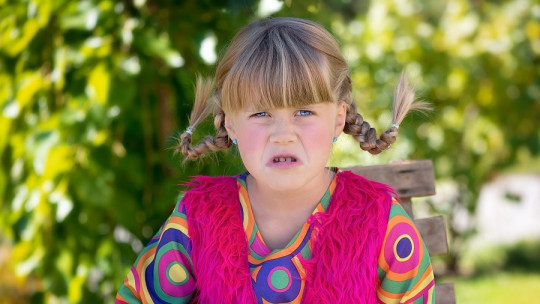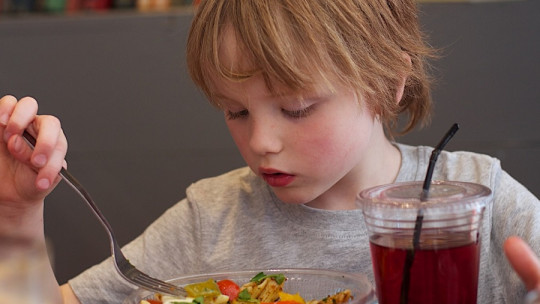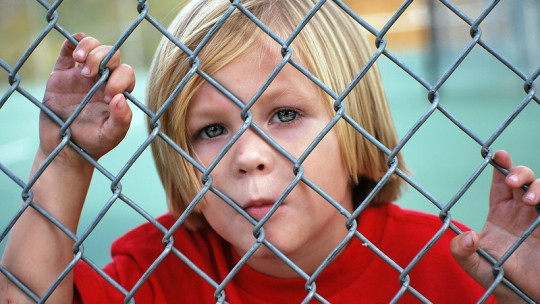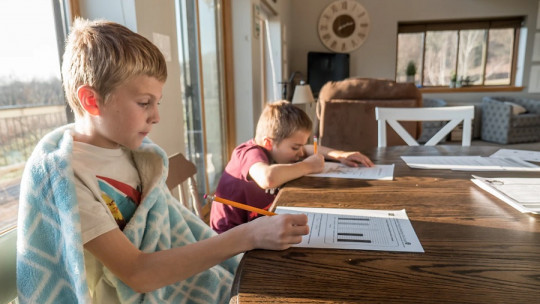
We have all been bored at some point in our lives and, until relatively recently, it didn’t seem like that was a problem. However, there is more and more talk about the inability that children and adolescents apparently have to tolerate boredom.
Throughout this article we will talk about boredom and the role it plays in childhood. In this way, we will delve into the possible consequences of trying to prevent minors from getting bored at all costs and, finally, we will make some proposals that may be useful to deal with this situation.
Boredom and childhood today
It is clear that boredom is, for most people, an unpleasant emotion that we do not like to feel. Simplifying quite a bit, we could say that it is an antonym of fun. However, this situation can be interpreted as a wonderful opportunity to explore and develop our skills.
It is undeniable that we live in the era of immediacy and constant stimuli. Furthermore, we are sent the message that we should constantly be doing things. Our daily lives are usually very structured and planned, with little room for improvisation or creativity.
When these aspects come together, it is easy to understand why Fathers and mothers can fall into trying to keep their children from getting bored.. Unfortunately, it is more common to see minors without looking up from technological devices than with any other toy. This, without a doubt, has a considerable impact on its development.
The use of screens in itself is not bad, the problem is associated with both the age of the child and the time spent and the content consumed. Excessive use implies that other activities stop being carried out. It is increasingly difficult to see children playing outdoors or experimenting and inventing their own games.
The consequences of protecting children from boredom
We must understand that there is a difference between lack of constant stimulation and boredom. The first can have a strong negative impact on the development of the infant that manifests itself with behavioral, emotional and psychological problems. What’s more, depending on the situation, it could be considered negligence on the part of adults.
In the second case, we understand that boredom is part of life and can be seen as a springboard towards creativity, curiosity, exploration, discovery and the development of new skills (or the refinement of already acquired ones). There are many scientific studies that link creativity and imagination with boredom.
Along these lines, we can understand that boredom is a driver of development for boys and girls both physically and cognitively. This is so since The motivation they feel to stop being bored leads them to explore the environment (motor stimulation) and also promotes the ability to solve problems (closely linked to creativity).
Furthermore, this leads to an increase in autonomy and, in turn, promotes processes such as initiative, self-taught learning and reflection in children. Without a doubt, depriving them of boredom, even with the best of intentions, can have a considerable impact on their personal and social development.
With everything explained so far, below we mention some of the main repercussions that have been observed so far:
What do we want to protect them from?
Is boredom really bad? Is it something we should protect our infants from? Perhaps it is interesting that, as a society, we can reflect on the issue with the aim of becoming aware of its importance and impact.
In this sense, we consider that it could be interesting that, as adults, we also do a self-observation exercise: What leads us to want to avoid boredom in our infants? What stirs us when our son/daughter says he/she is bored? What do we feel about our own boredom and what do we do with it?
So what do we do with boredom?
Assuming that boredom is not something bad in itself, even though it may be unpleasant, our main proposal is that we allow boys and girls to get bored. This can be really difficult, for adults too, and Our main task will be to accompany you in the management of this emotion.
Taking into account that boredom can be a source of creativity, imagination, exploration and movement along with the physical, cognitive and emotional benefits it can have, we can encourage them by asking them questions that help them begin to connect with their desires, tastes and preferences.
In addition to reducing screen time and reducing pleasurable activities that are excessively guided or structured by adults, other options that are also very interesting can be proposed such as:








